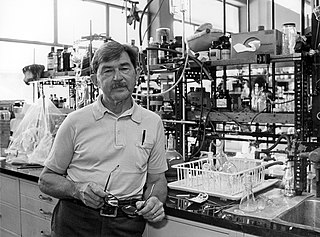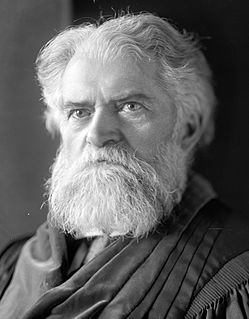A Quote by Samuel Johnson
Even those to whom Providence has allotted greater strength of understanding, can expect only to improve a single science. In every other part of learning, they must be content to follow opinions, which they are not able to examine; and, even in that which they claim as peculiarly their own, can seldom add more than some small particle of knowledge, to the hereditary stock devolved to them from ancient times, the collective labour of a thousand intellects.
Quote Topics
Able
Add
Ancient
Ancient Times
Claim
Collective
Content
Devolved
Even
Every
Examine
Expect
Follow
Greater
Hereditary
Improve
Knowledge
Labour
Learning
More
Must
Only
Opinions
Other
Own
Part
Particle
Providence
Science
Seldom
Single
Small
Small Part
Some
Stock
Strength
Than
Them
Those
Thousand
Times
Understanding
Which
Whom
Related Quotes
Among civilized and thriving nations, on the contrary, though a great number of people do no labor at all, many of whom consume the produce of ten times, frequently of a hundred times more labour than the greater part of those who work; yet the produce of the whole labour of the society is so great, that all are often abundantly supplied, and a workman, even of the lowest and poorest order, if he is frugal and industrious, may enjoy a greater share of the necessaries and conveniencies of life than it is possible for any savage to acquire.
Anyone who proposes to do good must not expect people to roll stones out of his way, but must accept his lot calmly if they even roll a few more on it. A strength which becomes clearer and stronger through experiences of such obstacles is the only strength that can conquer them. Resistance is only a waste of strength.
So while it is true that children are exposed to more information and a greater variety of experiences than were children of the past, it does not follow that they automatically become more sophisticated. We always know much more than we understand, and with the torrent of information to which young people are exposed, the gap between knowing and understanding, between experience and learning, has become even greater than it was in the past.
Criticism is a study by which men grow important and formidable at very small expense. The power of invention has been conferred by nature upon few, and the labour of learning those sciences which may, by mere labour, be obtained, is too great to be willingly endured; but every man can exert some judgment as he has upon the works of others; and he whom nature has made weak, and idleness keeps ignorant, may yet support his vanity by the name of critic.
Even in an advanced stage of civilization, there is always a tendency to prefer those parts of literature which favor ancient prejudices, rather than those which oppose them; and in cases where this tendency is very strong, the only effect of great learning will be to supply the materials which may corroborate old errors and confirm old superstitions. In our time such instances are not uncommon; and we frequently meet with men whose erudition ministers to their ignorance, and who, the more they read the less they know.
The human mind prefers something which it can recognize to something for which it has no name, and, whereas thousands of persons carry field glasses to bring horses, ships, or steeples close to them, only a few carry even the simplest pocket microscope. Yet a small microscope will reveal wonders a thousand times more thrilling than anything which Alice saw behind the looking-glass.
All good intellects have repeated, since Bacon's time, that there can be no real knowledge but that which is based on observed facts. This is incontestable, in our present advanced stage; but, if we look back to the primitive stage of human knowledge, we shall see that it must have been otherwise then. If it is true that every theory must be based upon observed facts; it is equally true that facts can not be observed without the guidance of some theory. Without such guidance, our facts would be desultory and fruitless; we could not retain them: for the most part we could not even perceive them.
Undeveloped though the science [of chemistry] is, it already has great power to bring benefits. Those accruing to physical welfare are readily recognized, as in providing cures, improving the materials needed for everyday living, moving to ameliorate the harm which mankind by its sheer numbers does to the environment, to say nothing of that which even today attends industrial development. And as we continue to improve our understanding of the basic science on which applications increasingly depend, material benefits of this and other kinds are secured for the future.
In a world in which we are exposed to more information, more options, more philosophies, more perspectives than ever before, in which we must choose the values by which we will live (rather than unquestioningly follow some tradition for no better reason than that our own parents did), we need to be willing to stand on our own judgment and trust our own intelligence-to look at the world through our own eyes-to chart our course and think through how to achieve the future we want, to commit ourselves to continuous questioning and learning-to be, in a word, self-responsible.
The public affairs of the union are spread throughout a very extensive region, and are extremely diversified by the local affairs connected with them, and can with difficulty be learnt in any other place, than in the central councils, to which a knowledge of them will be brought by the representatives of every part of the empire. Yet some knowledge of the affairs, and even of the laws of all the states, ought to be possessed by the members from each of the states.




































